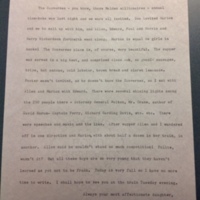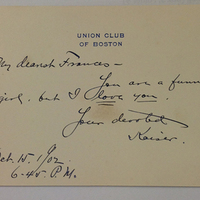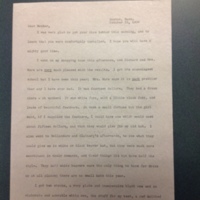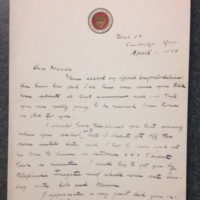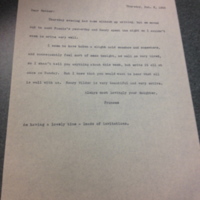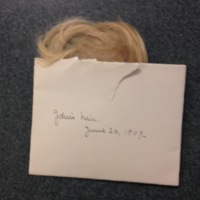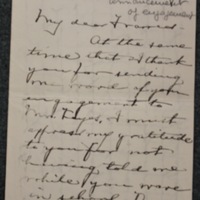Becoming Frances : Marriage
Keyes’s failure at gaining admittance to Byrn Mawr College in June 1902 did not bring an end to her formal studies. She continued at Miss Winsor’s for another year but her path was already taking a different turn. Sometime in 1901 (or earlier), Frances began a relationship with Henry (Harry) Wilder Keyes, whom she had known since she was a young child. In October 1902, Harry wrote Frances, “I love you” and sometime after that they were secretly engaged.
Haverhill, New Hampshire, where Harry’s family lived, was just across the Connecticut River from its twin town of Newbury. The people of these towns knew each other well. Shared family lineages intertwined their histories and the Keyes family was as well established as the Johnson family. Harry’s father, Henry, started out as a merchant in Newbury but moved across the river when he bought the General Moses Dow Farm (which was renamed Pine Grove Farm) and took up farming, went into Democratic state politics, and became involved in the building of railroads. Farming, politics and railroads were good ways to make and lose money in the nineteenth century and Henry Keyes seems to have done both.
After graduating from Harvard, Harry followed his father into farming; on a European trip he purchased Holstein-Friesian cattle for the farm. He also followed his father into business, but as a banker not a railroad president, and into politics, becoming a Republican rather than a Democrat. Harry was a founder and president of the Woodsville National Bank, rose from Selectman of Haverhill Township to the State House of Representatives and, at the time of his marriage to Frances, the State House. In 1917, he became Governor of New Hampshire and the progressive measures he took to ameliorate conditions for the state’s residents during World War I contributed to his election to the U.S. Senate and talk that he might someday occupy the White House.
When Frances and Harry told their families of their intention to marry, troubles ensued. Louise was not happy to learn that her seventeen-year-old daughter wanted to marry a man twenty-two years her senior. Harry’s widowed mother was also displeased that the daughter of the thrice-married and once-divorced Louise Wheeler (who had dropped the Pillsbury name) would soon be her son’s wife. Louise went so far as to take Frances to Europe for four months to alienate the couple’s affections. Despite all the resistance, Frances and Harry were married in Newbury’s Congregational Church on June 6, 1904. Before the ceremony, Frances exacted a promise from Harry that if they had a daughter she would be allowed to go to college. Frances instead gave birth to three sons: Henry, Jr. (1905), John Parkinson (1907), and Francis, called Peter (1912). All three sons attended Harvard University.

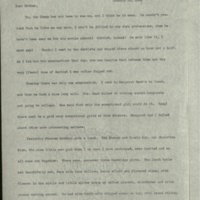
![Henry W Keyes to Frances P. Wheeler [Keyes]<br />
Letter, 1901 October 22 Henry W Keyes to Frances P. Wheeler [Keyes]<br />
Letter, 1901 October 22](http://libraryexhibits.uvm.edu/omeka/files/square_thumbnails/7e4b713d96ee96178707aa29e8adddb3.jpg)
![FPK to Harry Keyes, [1903] FPK to Harry Keyes, [1903]](http://libraryexhibits.uvm.edu/omeka/files/square_thumbnails/c2fb927be7b4204d6288a052767e7765.jpg)
